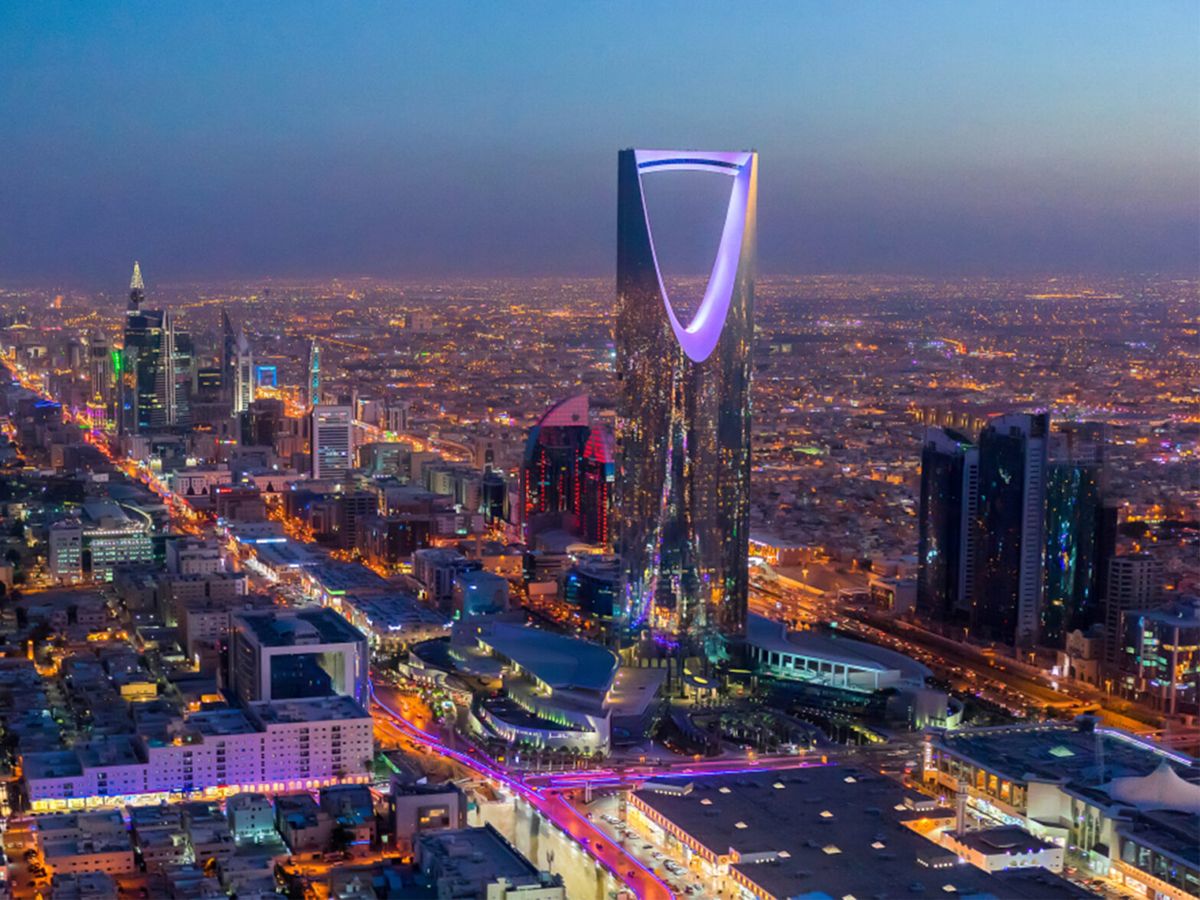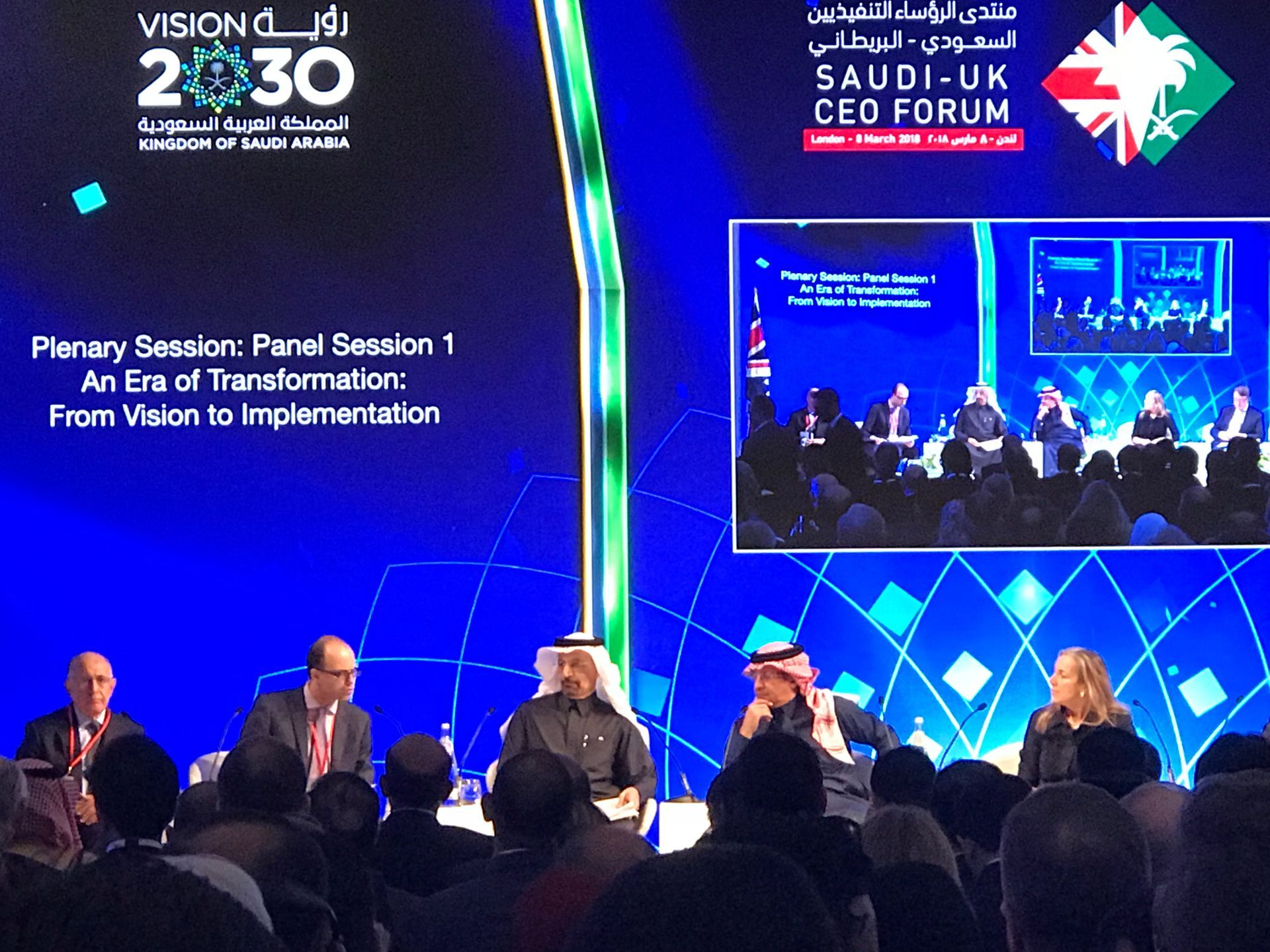It’s time to be honest about Saudi Arabia and to match its Vision 2030 with one of our own.
During an extraordinary Board meeting held within the Kingdom of Saudi Arabia last year, HSBC’s outgoing CEO was reported to have said, “the two main areas of global growth over the next ten years are China’s ‘one Belt one Road’ policy and… Saudi Arabia.” And he is right. The Kingdom of Saudi Arabia is gripped by a proactive and progressive reform movement that is encompassing the Government, people and culture and is unrelentingly focussed on creating new economies. The architect and driving force behind this socio-political and economic transformation plan, Vision 2030, is Crown Prince Muhammad bin Salman; known colloquially as MbS. His visit to the UK is intended to be part of a month long foreign tour which will also take him to France and the United States. Top of the agenda are trade, security and regional developments as well as discussions on how the UK can support the implementation of the Kingdom’s Vision 2030.
Saudi’s burgeoning youth population and continued low oil prices, set against major upheavals across the Middle East, are presenting an almost perfect storm of challenges for the Saudi Government. In tackling these challenges with economic diversification, localisation and on-shoring of production and continued progress in ‘Saudisation’ of the work-forces, Vision 2030 is seeking to lower unemployment, increase the role of small and medium sized enterprises and dramatically expand the role of women in the workforce and society; all measures for which many have been calling for decades.
Saudi is also increasingly meeting its responsibilities amongst its Sunni Muslim allies and is ever more assertive in articulating and defending their regional interests against a growing crescent of Shi’a Islamic revolutionary influence stretching from the Persian Gulf through geographical Mesopotamia, the Levant and Mediterranean. Unlikely alliances are evolving with Israel and previously close alliances are in the doghouse as Saudi, the UAE and Bahrain continue their blockade of Qatar; Qatar’s reportedly close relations with Saudi’s longstanding Persian rivals and the socio-revolutionary Islamists of the Muslim Brotherhood remain unacceptable to the Kingdom. These conflicts have not been contained within the Gulf, but regularly spill out across the wider region in proxy wars as well as across our own Media, as various Gulf-aligned interests duel with each other in a phony war, a communications war, a war for our hearts and minds.
Cutting through this noise, MbS’ visit comes during a period of significant upheaval for the UK as well. Brexit is providing both a major challenge, as it sucks up bandwidth across Whitehall and Westminster, as well as a significant opportunity for long overdue trade deals with the likes of the Saudi-led Gulf Co-operation Council. And, it is the trade part of the Saudi-British relationship that is critical. Trade adds billions to both of our coffers and employs thousands of British workers. Our cooperation with Saudi in security and defence keeps the region’s extremists in check and helps maintain a rare piece of regional stability.
MbS has spoken highly of the UK’s Thatcherite revolution upon launching Vision 2030 and is rolling out a similar transformation of the Saudi economy, smashing vested interests (most recently with the enforced sojourns for many of Saudi’s king-makers and breakers at Riyadh’s Ritz-Carlton), empowering Saudi’s own human capital and rapidly increasing in the role of women in the work-place. The UK can and should play a more intimate and productive role in all of this, or we risk irrelevance in the face of more personal, focussed and effective engagements from France, America, Russia and China.
As Stuart D’Souza, CEO of AEI Saudi and the leading Riyadh based veteran of British-Saudi commercial relations, neatly summarises, “the City of London has a lot to offer as a future home of Saudi Aramco’s upcoming international listing; an event that is not without its risks but which is central to the long-term funding of Vision 2030. In defence, we have two long-running Government-to-Government programmes that will provide a solid foundation upon which to launch a British-flavoured transformation of the Saudi defence sector. Our Health and Education systems provide useful benchmarks for future development and a wealth of much-needed insight and expertise.”
Whilst neighbours continue to suffer conflict and disorder, Saudi Arabia remains an anchor for British policy in the region, a pivotal regional power broker and now, if we are honest, a peer. However, our current relations were largely set in the 1980s, a wave we have been riding ever since but from whose crest we have gradually fallen. For those who claim we should exert more influence on the Kingdom and take a tougher line on their already improving human rights record and equally evolving social conservatism, I would point them towards the old diplomatic adage that ‘to have influence, we must matter.’ And, frankly, it is trade which matters. It is about jobs in the UK and Saudi. It is about the future prosperity of the UK and Saudi. It is about the shared security of the UK and Saudi.
Vision 2030 is aimed at creating an economy that does not exist today; one fit for the upcoming generations and which will offer them a life with dignity and work with pride. It is about the young thrusters in Saudi and so it needs to be matched with an equally energetic and vibrant response from the UK; a British Vision 2030, perhaps, that communicates clearly our shared aspirations, interests and values post-Brexit and which recognises and places future trade at the heart of our allied engines of growth and social development. In preparing to receive MbS, we should remember Lawrence’s observation that “the Arabs believe in persons, not institutions” and ensure he knows who owns this critical bi-lateral relationship right from the first moment he sets foot in the UK.
Joseph Walker-Cousins
Riyadh



